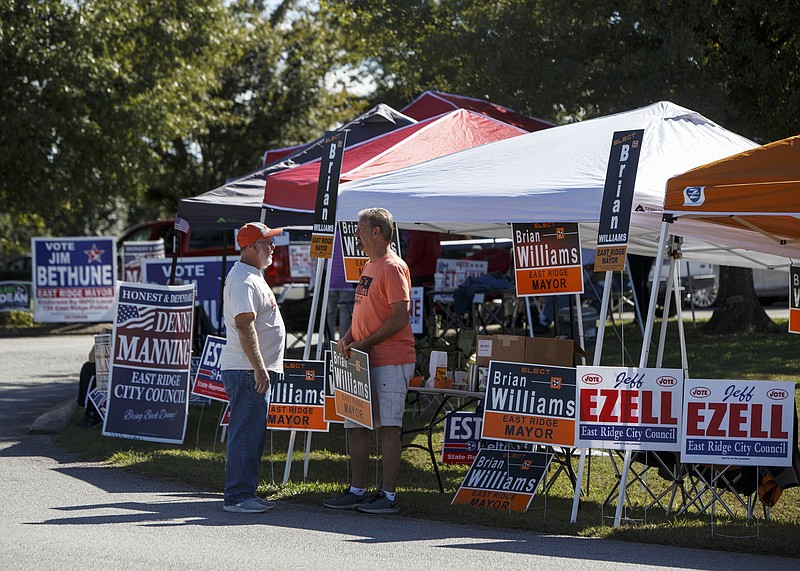The good news is that for the first three days of early voting for November's mid-term election, nearly 300 percent more Hamilton County residents voted than they did for the first three days of voting in 2014.
The bad news is that three-day total of 16,292 voters puts the county - the state's fourth largest - only sixth among the state's 95 counties.
We trailed the three larger counties, Davidson (Nashville), Shelby (Memphis) and Knox (Knoxville), but we also were behind Williamson, a bedroom county for Nashville, and Rutherford (Murfreesboro).
So we renew our question, even with the larger turnout, why don't many Hamilton County residents vote?
We certainly didn't measure up as a county for the totality of early voting in the primary election in August. While the state turnout for the primary increased by 11.01 percent over 2014, Hamilton County early voting was down by 0.21 percent. While the county population increased by some 11,011 people since 2014, according to United States Census estimates, 46 fewer people in Hamilton County voted early. Its estimated early-voting turnout of 8.41 percent was last among the state's counties.
However, Hamilton County, according to state totals after three days of voting, had the 15th biggest increase in the state, going from 4,101 votes in 2014 to 16,292 this year. In doing so, it averaged some 5,430 votes a day. If it continues to average that amount for the entire 14-day early-voting period, it will shatter the early-voting totals from every mid-term election this century.
Carrying out that average would result in some 76,020 county residents voting early. That would be nearly double the 40,181 who voted early in 2006, when the state last had an open United States Senate race (as it does this year), would be nearly three times the 27,053 who voted early in 2014 (when there was neither an open Senate nor governor's race) or the 26,801 who voted early in 2010 (when there was an open governor's race), and would be more than three times the 23,120 who voted early in 2002 (when there was an open U.S. Senate race).
Even if the Hamilton County four-day early-voting total of 20,036 (the state website did not include Saturday's slightly lower count) is extended, it still would far surpass any mid-term total this century. Indeed, the four-day numbers are slightly ahead of the county's early-voting pace in the 2016 election.
But all that shouldn't make us pat ourselves on the back. We should want to vote in every election but especially those in which a governor of the state and a United States senator are chosen.
Not only are those two offices on the line, but the potential party control of the Senate is up for grabs. While the Real Clear Politics Senate Map has moved the Tennessee race between Republican U.S. Rep. Marsha Blackburn and Democratic former Gov. Phil Bredesen into its "Leans GOP" category, things could change. And with two Senate seats held during this Congress by Republicans still in the "Toss Up" category, anything could happen.
Vote as if your state and country depended on it. They just might.
